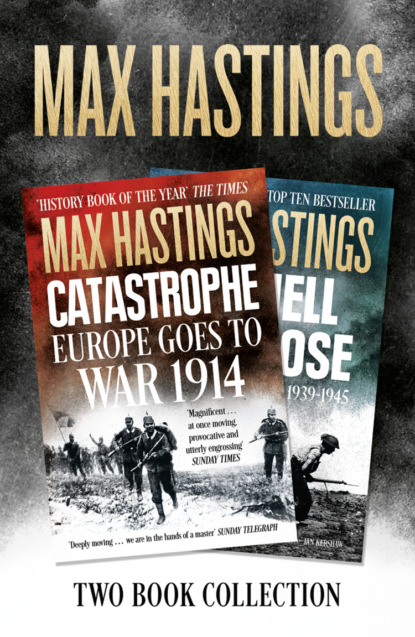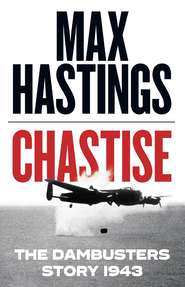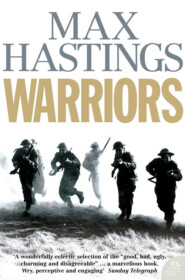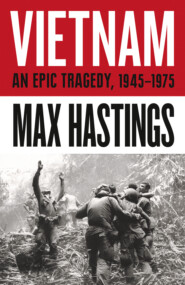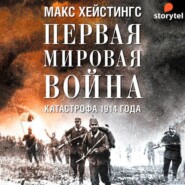По всем вопросам обращайтесь на: info@litportal.ru
(©) 2003-2024.
✖
Max Hastings Two-Book Collection: All Hell Let Loose and Catastrophe
Настройки чтения
Размер шрифта
Высота строк
Поля
The navy suffered severely at Dunkirk, losing six destroyers and a further twenty-five damaged. Its worst day came on 1 June, when three destroyers and a passenger ship were sunk by air attack and four others crippled. Thereafter, the Admiralty felt obliged to withdraw its large warships from the evacuation. The RAF was often cursed by soldiers and sailors for its supposed absence from the skies; every man at Dunkirk learned to dread the repeated Stuka attacks. Yet Fighter Command made a major contribution to holding the Luftwaffe at bay, at the cost of losing 177 aircraft during the nine days of the evacuation. As the Germans sought to impede Dynamo, their pilots declared themselves more hard-pressed by fighters than at any time since 10 May. The Luftwaffe’s effort against the departing British fell far short of Goering’s hopes and promises, and this was as much due to the RAF as to its own bungling. After 1 June the Luftwaffe redeployed most of its aircraft to harry the French, making the final phase of the evacuation much less costly than the first.
The towering reality was that the BEF got away. Some 338,000 men were brought back to England, 229,000 of them British, the remainder French and Belgian. The withdrawal and evacuation were widely held to be Gort’s personal triumph; but while the C-in-C indeed gave appropriate orders, success would have been unattainable had not Hitler held back his tanks. It remains unlikely, though just plausible, that this was a political decision, prompted by a belief that restraint would render the British more susceptible to peace negotiations. More credibly, Hitler accepted Goering’s assurance that the Luftwaffe could finish off the BEF, which no longer threatened German strategic purposes; and the panzers needed rapid refit before being urgently redeployed against Weygand’s forces. The French First Army conducted a brave stand at Lille, which contributed importantly to holding the Germans off the Dunkirk perimeter; it was understandable that British soldiers showed bitterness towards their allies, but Churchill’s army had performed little better than Reynaud’s in the Continental campaign.
Dunkirk was indeed a deliverance, from which the prime minister extracted a perverse propaganda triumph. Lancashire woman Nella Last wrote on 5 June: ‘I forgot I was a middle-aged housewife who sometimes got up tired and who had backache. The story made me feel part of something that was undying and never old – like a flame to light or warm, but strong enough to burn and destroy rubbish…Somehow I felt everything to be worthwhile, and I felt glad I was of the same race as the rescuers and rescued.’ The British Army salvaged a professional cadre around which new formations might be built, but all its arms and equipment had been lost. The BEF left behind in France 64,000 vehicles, 76,000 tons of ammunition, 2,500 guns and more than 400,000 tons of stores. Britain’s land forces were effectively disarmed: many soldiers would wait years before receiving weapons and equipment that rendered them once more fit for a battlefield.
It is sometimes supposed that, when the BEF quit the Continent, the campaign ended, which is a travesty. In each day’s fighting between 10 May and 3 June, the Germans had suffered an average of 2,500 casualties. During the ensuing fortnight, their daily loss rate doubled to 5,000. A soldier of the French 28th Division wrote defiantly on 28 May: ‘It seems that the Germans have taken Arras and Lille. If this is true, the Nation must rediscover its old spirit of 1914 and 1789.’ Some units remained committed to fight, some Frenchmen shrugged off the despair of their commanders. One of Brigadier Charles de Gaulle’s men wrote: ‘In fifteen days we have carried out four attacks and we have always been successful, so we are going to pull together and we will get that pig Hitler.’ A soldier wrote on 2 June: ‘We are really tired, but we have to be here, they shall not pass and we shall get them…I shall be proud to have participated in the Victory of which I have no doubts.’ Even some foreign governments were not yet convinced of France’s final defeat. On 2 June Mussolini’s foreign minister flaunted the Italian regime’s boundless cynicism when he told the French ambassador in Rome: ‘Have some victories and you will have us with you.’
In the last phase of the campaign, forty French infantry divisions and the remains of three armoured formations faced fifty German infantry and ten panzer divisions. Thirty-five of Weygand’s generals were sacked and replaced. The French army fought better in June 1940 than it had done in May, but it was too late to redeem the initial disasters. Constantin Joffe of the Foreign Legion expressed surprise at the manner in which the Jews of his regiment distinguished themselves:
Many of them were small tailors or peddlers from Belleville, the workman’s quarter of Paris, or from the ghetto of the Rue du Temple. No one would have anything to do with them at [the training camp of] Barcares…They spoke only Yiddish. They looked as if they were afraid of a machine-gun, they seemed to be in perpetual fear. Yet under fire, if volunteers were needed to fetch back munitions under a heavy shelling or if lines of barbed wire entanglements had to be up at night fairly in front of the enemy guns, these little men were the first to offer their service. They did it quietly without swagger, perhaps without enthusiasm; but they did it. It was always they who, up to the very last moment, brought back our arms from an abandoned post.
Wehrmacht commanders expressed admiration for the manner in which some French units fought in early June to defend their new line on the Somme. A German diarist wrote: ‘In these ruined villages the French resisted to the last man. Some “hedgehogs” carried on when our infantry was twenty miles behind them.’ But on 6 June the front was decisively breached, and by the 9th von Rundstedt’s tanks were driving into Rouen. Next day, they broke the Aisne line as the French government left Paris; diplomat Jean Chauvel set fire to the chimney of his office in the Quai d’Orsay as he burned a mass of papers in its fireplace, one of many such symbolic bonfires of his nation’s hopes. There were fears that, with the administration gone, socialist workers from the suburbs would march into the capital and proclaim a new Commune. Instead, when so many inhabitants had fled, there was only a macabre tranquillity: on 12 June in a smart Paris street, a Swiss journalist was bemused to meet a herd of abandoned cattle, lowing plaintively. The fall of the capital two days later caused the Austrian writer Stefan Zweig, a Jew now in remote exile, to write: ‘Few of my own misfortunes have dismayed me and filled me with despair as much as the humiliation of Paris, a city that was blessed like no other with the ability to make anyone who came there happy.’
The great flight of civilians west and south continued by day and night. ‘Silently, with no lights on, cars kept coming, one after the other,’ wrote Irène Némirovsky, ‘full to bursting with baggage and furniture, prams and birdcages, packing cases and baskets of clothes, each with a mattress tied firmly to the roof. They looked like mountains of fragile scaffolding and they seemed to move without the aid of a motor, propelled by their own weight.’ Némirovsky described three hapless civilian victims of air attack: ‘Their bodies had been torn to shreds, but by chance their three faces were untouched. Such gloomy, ordinary faces, with a dim, fixed, stunned expression as if they were trying in vain to understand what was happening to them; they weren’t made, my God, to die in a battle, they weren’t made for death.’
RAF fighter pilot Paul Richey saw a Luftwaffe bomb fall upon four farmworkers as they tilled a field: ‘We found them among the craters. The old man lay face down, his body twisted grotesquely, one leg shattered and a savage gash across the back of his neck, oozing steadily into the earth. His son lay close by…Against the hedge I found what must have been the remains of the third boy – recognizable only by a few tattered rags, a broken boot and some splinters of bone. The five stricken horses lay bleeding beside the smashed harrow, we shot them later. The air was foul with the reek of high explosive.’
In those days when Europeans were still losing their innocence, British pilots were stunned by the spectacle of Messerschmitts machine-gunning refugees. Richey met a fellow airman in the mess: ‘A disillusioned Johnny almost reluctantly said, “They are shits after all.” From this moment our concept of a chivalrous foe was dead.’ Private Ernie Farrow of the British Army’s 2nd Norfolks likewise recoiled from the carnage wrought by Goering’s knights of the air: ‘All along the road were people who had been killed with no arms, no heads, there was cattle lying about dead, there was little tiny children, there was old people. Not one or two, but hundreds of them lying about…We couldn’t stop to clear the road…so we had to drive our lorries over the top of them, which was heart-breaking – really heart-breaking.’
At Reynaud’s new refuge of government, the Château de Chissay on the Loire, his mistress Hélène de Portes was seen directing visitors’ cars, clad in a red dressing gown over pyjamas. Her impassioned influence was exercised to persuade the prime minister to agree an armistice. Reynaud wrote sadly later, after Portes’ death in a car crash, that she ‘was led astray by her desire to be in with the young…and to distance herself from Jews and old politicians. But she thought she was helping me.’ Portes’ mood reflected that of much of her nation. At Sully-sur-Loire a woman, red with anger and excitement, shouted at a French officer standing in front of a church: ‘What are you waiting for, you soldiers, to stop this war? Do you want them to massacre us all with our children?…Why are you still fighting? That Reynaud! If I could get hold of him, the scoundrel!’
At the headquarters of the Wehrmacht, euphoria prevailed. Gen. Eduard Wagner wrote on 15 June: ‘It should really be recorded for the history of our times and of the world how [Wehrmacht chief of staff Franz] Halder sits at the million-scale map and measures off the distances with a metre-rule and already deploys across the Loire. I doubt whether [Gen. Hans von] Seeckt’s synthesis of “cool judgement and warm enthusiasm” has ever found such brilliant reality as in the General Staff in this campaign…However, in spite of everything the Führer has earned the glory, for without his determination things would never have reached such an outcome.’
On the evening of 12 June, Weygand proposed seeking an armistice. Reynaud suggested that he and his ministers might retain office in exile, but Marshal Philippe Pétain dismissed the notion. On the 16th, Reynaud accepted that most of his ministers favoured capitulation, and resigned in favour of Pétain. The marshal broadcast to the French people next morning: ‘It is with a heavy heart I say to you today that it is necessary to stop fighting.’ Thereafter, few French soldiers saw much purpose in sacrificing their lives on the battlefield.
Yet there were occasional gallant, futile stands. An infantry battalion near Châteauneuf stubbornly held its positions. Another episode became enshrined in the legend of France: as columns of refugees and deserters from the army fled across the Loire, the commandant of the French cavalry school at Saumur, a hoary old warhorse named Col. Daniel Michon, was ordered to deploy his 780 cadets and instructors to defend the area’s bridges. He assembled them all in Saumur’s great amphitheatre and announced: ‘Gentlemen, for the school it is a mission of sacrifice. France is depending on you.’ One pupil, Jean-Louis Dunand, who had abandoned architectural studies in Paris to become a cadet, wrote exultantly to his parents: ‘I am so impatient to be in the fight, as are all my comrades here. Times a hundred times more painful await me, but I am prepared to meet them with a smile.’
The local mayor had already lost his own soldier son on the battlefield. Knowing that Pétain intended surrender, he pleaded with Michon not to make ancient Saumur a battlefield. The colonel contemptuously dismissed him: ‘I have an order to defend the town. The honour of the school is at stake.’ He sent away his eight hundred horses, and deployed the cadets in ‘brigades’, each led by an instructor, on a twelve-mile front at likely Loire crossing places; they were reinforced by a few hundred Algerian infantry trainees and army stragglers, supported by a handful of tanks. Just before midnight on 18 June, when leading elements of the German cavalry division led by Gen. Kurt Feldt approached Saumur, they were greeted by a barrage of fire. A German officer advanced beside a French prisoner carrying a white flag, in an attempt to parley. But this provoked shots and explosions which killed both men. Thereafter, as German artillery began to bombard Saumur, fierce little battles erupted the length of the line.
Some of the defenders acted with a heroism no less memorable because it was self-consciously theatrical. A cadet, Jean Labuze, questioned the order to hold until the last, saying despairingly, ‘One is ready to die, but not to die for nothing.’ His officer responded, shortly before himself being killed: ‘No one dies for nothing. We shall all die for France.’ Another officer, at Milly-le-Meugon, roused the parish priest from his bed at midnight in order that his pupils might be shriven before facing death; some two hundred took communion in the darkened village church before fighting resumed. The Loire bridges around Saumur were blown by the defenders, and throughout 19 and 20 June, repeated German attempts to cross in small boats were beaten off.
But the invaders instead crossed the river up-and downstream, outflanking Saumur; the last positions held by men of the cavalry school, around a farmhouse at Aunis three miles south-west of the town, were overwhelmed. Scores of cadets and instructors were wounded or killed, including the former architectural student Jean-Louis Dunand. Another of the dead at Aunis was a young soldier named Jehan Allain, before the war a rising organist and composer: Allain had already won a Croix de Guerre in Flanders, experienced evacuation from Dunkirk and returned from England to fight again, before meeting his death. Sheets of an unfinished musical composition were found in the saddlebag of his motorcycle.
Even as the battles around Saumur were being fought, disgruntled soldiers and civilians looked on, mocking and upbraiding the defenders for their folly, and for causing needless slaughter. But following France’s surrender, as unhappy old Colonel Michon abandoned his positions and led a column westwards in the hope of continuing the struggle elsewhere, patriots embraced the story of his little stand. At Saumur at least, they said, some soldiers had behaved with honour; monuments were erected to such men as Lt. Jacques Desplats, who died with his beloved Airedale terrier Nelson defending the island of Gennes under Michon’s command. Militarily, the actions of 19–20 June meant nothing. Morally, to the people of France they eventually came to mean much.
Most of the army meanwhile awaited captivity. Lt. George Friedmann, a philosopher in civilian life, wrote: ‘Today among many French people, I do not detect any sense of pain at the misfortunes of their country…I have observed only a sort of complacent relief (sometimes even exalted relief), a kind of base atavistic satisfaction at the knowledge that “For us, it’s over,” without caring about anything else.’ The French political right applauded the accession of the Pétain regime to power, one of its adherents writing to a friend: ‘At last we have victory.’ As the marshal himself travelled the country in the months following the armistice, he was greeted by huge, hysterically applauding crowds. They believed that nothing the Nazis might do could be as terrible as the cost of continuing a futile struggle. The fact that Churchill persuaded the British people to an alternative judgement, to defiance of perceived reality, prompted enduring French envy, resentment, bitterness.
The conquest of France and the Low Countries cost Germany almost 43,000 killed, 117,000 wounded; France lost around 50,000 dead, Britain 11,000; the Germans took 1.5 million prisoners. The British were granted one further miraculous deliverance, a second Dunkirk. After the BEF’s escape, Churchill made the fine moral but reckless military decision to send more troops to France, to stiffen the resolve of its government. In June, two ill-equipped divisions were shipped to join the residual British forces on the Continent. After the armistice, because the Germans were overwhelmingly preoccupied elsewhere, it proved possible to evacuate almost 200,000 men from the north-western French ports to England, with the loss of only a few thousand. Churchill was fortunate thus to be spared the consequences of a folly.
Britain’s ambassador to France, Sir Ronald Campbell, wrote in valediction after the collapse: ‘I should…describe France as a man who, stunned by an unexpected blow, was unable to rise to his feet before his opponent delivered the “coup de grace”.’ In the decades that followed French defeat, there was intense debate about alleged national decadence, which had caused such an outcome. That summer of 1940, the Bishop of Toulouse thundered: ‘Have we suffered enough? Have we prayed enough? Have we repented for sixty years of national apostasy, sixty years during which the French spirit has suffered all the perversions of modern ideas…during which French morality has declined, during which anarchy has strangely developed.’
Modern staff-college war games of the 1940 campaign sometimes conclude with German defeat. This causes a few historians to argue that Hitler’s triumph on the battlefield, far from being inevitable, might have been averted. It is hard to accept this view. In the years that followed the 1940 débâcle, the German army repeatedly demonstrated its institutional superiority over the Western Allies, who prevailed on battlefields only when they had a substantial superiority of men, tanks and air support. The Wehrmacht displayed a dynamic energy entirely absent from the 1940 Allied armies. Contrary to popular myth, the Germans did not conquer France in accordance with a detailed plan for blitzkrieg – lightning war. Rather, commanders – and especially Guderian – showed inspired opportunism, with results that exceeded their wildest expectations. If the French had moved faster and the Germans more slowly, the outcome of the campaign could have been different, but such an assertion is meaningless.
In 1940 the Germans were not obliged to divert large forces to an eastern front, as they were in 1914 when France was allied with Russia. Despite the indisputable superiority of the invaders’ air arm, Allied defeat was the consequence less of material than of moral inferiority; with rare and isolated exceptions, at every level Allied responses to German initiatives lacked conviction. Winston Churchill was almost alone among Anglo-French directors of the war, as well as among soldiers on the battlefield, in being willing to demand a struggle to the last man. French politicians and generals, by contrast, adopted a rationalist view: they identified limits to the damage acceptable to the population and fabric of their country to avoid bowing to a foreign invader, as often before in history France had been compelled to bow. Relatively few French soldiers felt willing to sacrifice themselves for the cause, because they believed neither in their national leaders nor in their commanders; the country had endured forty-two chronically weak governments between 1920 and 1940. Gamelin wrote as early as 18 May: ‘The French soldier, yesterday’s citizen, did not believe in the war…Disposed to criticise ceaselessly anyone holding the slightest amount of authority…he did not receive the kind of moral and patriotic education which would have prepared him for the drama in which the nation’s destiny will be played out.’
Irène Némirovsky wrote reflectively in 1941, looking back on the collapse: ‘For years, everything done in France within a certain social class has had only one motive: fear…Who will harm them the least (not in the future, not in the abstract, but right now and in the form of kicks in the arse or slaps in the face)? The Germans? The English? The Russians? The Germans won, but the beating has been forgotten and the Germans can protect them. That’s why they’re “for the Germans”.’ Very few Frenchmen in 1940 and afterwards followed the example set by tens of thousands of Poles – fighting on in exile, even after their country had been defeated. Only in 1943–44, when it became plain that the Allies would win the war and German occupation had proved intolerably oppressive, did French people in large numbers offer significant assistance to the Anglo-Americans. In the years of Britain’s lonely defiance, French forces offered determined resistance to Churchill’s armies and fleets wherever in the world they encountered them. Few even among those who did not fight against the British chose instead to fight with them: the French aircraft carrier Béarn, for instance, laden with precious American fighter planes, took refuge in the French Caribbean colony of Martinique from June 1940 until November 1942.
Among the shocked spectators of the collapse of France was Stalin. Molotov sent Hitler a dutiful telegram offering congratulations on his capture of Paris, but in Moscow the Nazi triumph provoked horror. All Soviet strategic calculations had been founded upon an expectation that a protracted bloodbath would take place on the Continent, which would drastically weaken Germany as well as the Western Powers. A Russian diplomat in London later remarked indiscreetly that, while most of the world weighed Allied and German casualties against each other, Stalin added the two together to compile an assessment of his own balance of advantage. Nikita Khrushchev described the fury of Russia’s warlord at Pétain’s surrender: ‘Stalin was in a great agitation, very nervous. I had seldom seen him in such a state. As a rule he seldom sat in his chair during meetings, usually he kept walking. On this occasion he was literally running around the room, swearing terribly. He cursed the French, cursed the English, [demanding]: “How come they allowed Hitler to thrash them?”’
Stalin probably expected eventually to fight Germany, but anticipated at least two or three years’ grace before a showdown. The Soviet Union had embarked on a massive rearmament programme that was still far from fulfilment. Stalin believed that Hitler gained too many material advantages from their relationship to breach the Nazi–Soviet Pact, at least until Britain was occupied. The German navy enjoyed access to north Russian ports. Vast quantities of corn, commodities and oil flowed from the Soviet Union to the Reich. Even after the French surrender Stalin remained anxious to avoid provocation of his dangerous neighbour, and constructed no major fortifications on his western frontier. Instead, he exploited the chaos of the moment to increase his own territorial gains. While the eyes of the world were fixed on France, he annexed the Baltic states, where in the year that followed the NKVD conducted savage purges and mass deportations. From Romania, he took Bessarabia, which had been Russian property between 1812 and 1919, and the Bukovina. At least 100,000 Romanians, and perhaps as many as half a million, were deported to Central Asia, to replace Russian industrial workers conscripted into the army. Amid events in the west, few people outside the world’s foreign ministries noticed the human catastrophe created by Stalin in the east; to that extent, Hitler’s lunge across western Europe served Soviet interests. But Russia’s warlord recognised the outcome as a calamity almost as alarming for his own nation as for the vanquished Western Powers.
Italy entered the war alongside Hitler on 10 June, in a shamelessly undignified scramble for a share of the spoils. Benito Mussolini feared Hitler and disliked Germans, as did many of his fellow countrymen, but he was unable to resist the temptation to secure cheap gains in Europe and the Allied African empires. Mussolini’s conduct inspired the derision of most of his contemporaries, friends and foes alike: he coupled himself to Hitler because he sought for his country a splendour he knew Italians could not achieve alone; he wanted the rewards of war, in return for a token expenditure of blood. To his intimates in May and June 1940, he repeatedly expressed hopes that a thousand or two Italians might be killed before a peace settlement with the Allies was signed, to pay for the booty he wanted.
On the eve of commencing hostilities with France, Mussolini asserted privately his intention to declare war, but not to wage it. Unsurprisingly, this minimalist approach precipitated a fiasco: on 17 June, when the French had already asked for an armistice, he abruptly ordered an attack on the Franco–Italian border in the Alps. The Italian army, wrong-footed by the sudden transition from manning fixed positions to launching an offensive, was briskly repulsed. The Duce’s delusions and confusion of purpose persisted thereafter: he expressed hopes that the British would not make peace until Italy had been able to make some show of contributing to their defeat, and that the Germans would suffer a million casualties before Britain was overrun. He wished to see Hitler victorious, but not all-powerful. All his dreams would perish in a fashion that would have rendered Mussolini an object of pity and ridicule, had not his delusions cost so many lives.
On 20 June, Franz Halder wrote complacently: ‘I just cannot comprehend what more the political leadership could want of us, and which of its wishes have remained unfulfilled.’ Hitler’s army adjutant Col. Georg Engel recorded: ‘The C-in-C [Gen. Walther von Brauchitsch] had his hour of triumph with the Führer when he announced the end of operations and preparations for an armistice. He briefed the F[ührer] on the urgent need either to make peace with Britain or to prepare and carry out an invasion as soon as possible. The Führer is sceptical and considers Britain so weak that, after bombing, major land operations will be unnecessary. The army will move in and take up occupation duties. The F[ührer] comments that “One way or another…[the British] will have to accept the situation.”’
Among the more unlikely spectators of the German victory parade in Paris on 22 June was a bewildered nineteen-year-old English girl, Rosemary Say, who found herself trapped in the French capital:
The war machine rolled down the Champs Elysées: gleaming horses, tanks, machinery, guns and thousands upon thousands of soldiers. The procession was immaculate, shining and seemingly endless…like a gigantic green snake that wound itself around the heart of the broken city, which waited pathetically to be swallowed up. There was a huge crowd of onlookers, most of them silent but some cheering. My [neutral American] companions were like small boys: calling out the names of different regiments, exclaiming at the modern tanks and whistling at the wonderful horses. I was quiet, fully conscious that I was caught up in a moment of history. Even so, I felt no grand emotions…But as the hours passed and the seemingly endless spectacle continued, I began to feel a little ashamed at having accepted the invitation. I thought of my family and friends back in London, and of the fears for the future they must have.
Before the Germans attacked in the west, the Allies had wanted a long war, believing this would serve their best interests by enabling them to mobilise both American support and their own industrial resources against Hitler. The fall of Norway, Denmark, France, Belgium and Holland seemed to show that instead, the Nazis had achieved a swift and conclusive triumph. Few people anywhere in the world saw that Germany’s armistice with France, signed in the historic railway carriage at Compiègne on 22 June, marked not an end, but a beginning. The scale of Hitler’s ambitions, and the stubbornness of Churchill’s defiance, had yet to reveal themselves.
4
Britain Alone
RAF fighter pilot Paul Richey, wounded in France, was flown home by mail plane in the first days of June: ‘I looked down on the calm and peaceful English countryside, the smoke rising not from bombed villages, but lazily from cottage chimneys, and saw a game of cricket in progress on a village pitch. With my mind still filled with the blast and flame that had shattered France, I was seized with utter disgust at the smug contentedness England enjoyed behind her sea barrier. I thought a few bombs might wake up those cricketers, and that they wouldn’t be long in coming either.’ Richey echoed the resentment many men and women feel, on coming fresh from the horrors of war to encounter those spared from them. He was right that the people of southern England would not long enjoy their cricket undisturbed. But, when summoned from their pitches, almost without comprehension until their national leader enthroned their experience in majestic prose, they inflicted upon Hitler’s Germany one of the decisive repulses of history.
Churchill’s speech to the House of Commons on 18 June 1940 has been so often quoted that it sometimes receives only the nod due to glorious rhetoric. But its closing words repay attention, because they defined for the rest of the war the democracies’ vision of their purpose:
What General Weygand called the battle of France is over. I expect that the battle of Britain is about to begin. Upon this battle depends the survival of Christian civilisation. Upon it depends our own British life, and the long continuity of our institutions and our empire. The whole might and fury of the enemy must very soon be turned on us. Hitler knows that he will have to break us in this island or lose the war. If we can stand up to him, all Europe may be free and the life of the world move forward into broad, sunlit uplands. But if we fail, then the whole world, including the United States, will sink into the abyss of a new Dark Age, made more sinister, and perhaps more protracted, by the lights of perverted science. Let us, therefore, brace ourselves to our duties and so bear ourselves that, if the British Empire and Commonwealth last for a thousand years, men will still say, ‘This was their finest hour.’
It is striking to contrast the prime minister’s appeal to ‘brace ourselves to our duties’ with the strident demands of Germany’s warlord, in similar circumstances in 1944–45, for ‘fanatical resistance’. Grace, dignity, wit, humanity and resolution characterised the leadership of Britain’s prime minister; only the last of these could be attributed to Hitler. In the summer of 1940, Churchill faced an enormous challenge, to convince his own people and the world that continued resistance was credible. Sergeant L.D. Pexton, thirty-four years old, was a prisoner in Germany when he wrote on 19 July: ‘Heard today that Hitler had broadcast some peace terms and that Churchill had told him what to do with them…Hope they do patch up some sort of terms as everyone here wants it, and to get home.’ Pexton’s view was obviously influenced by experiencing defeat in France, and thereafter finding himself at the mercy of the victorious Nazis. But in Britain, too, there were those – especially among the commercial classes and the ruling caste, best informed about the nation’s weakness – who continued to fear the worst. It was Churchill’s epic personal achievement to rally them in support of the simple purpose of repelling invasion.
The latter months of 1940 were decisive in determining the course of the war. The Nazis, stunned by the scale of their triumphs, allowed themselves to suffer a loss of momentum. By launching an air assault on Britain, Hitler adopted the worst possible strategic compromise: as master of the Continent, he believed a modest further display of force would suffice to precipitate its surrender. Yet if, instead, he had left Churchill’s people to stew on their island, the prime minister would have faced great difficulties in sustaining national morale and a charade of strategic purpose. A small German contingent dispatched to support the Italian attack on Egypt that autumn would probably have sufficed to expel Britain from the Middle East; Malta could easily have been taken. Such humiliations would have dealt heavy blows to the credibility of Churchill’s policy of fighting on.
As it was, however, the Luftwaffe’s clumsy offensive posed the one challenge which Britain was well placed to repel. The British Army and people were not obliged to confront the Wehrmacht on their beaches and in their fields – a clash that would probably have ended ignominiously for the defenders. The prime minister merely required their acquiescence, while the country was defended by a few hundred RAF pilots and – more importantly though less conspicuously – by the formidable might of the Royal Navy’s ships at sea. The prime minister’s exalting leadership secured public support for his defiance of the logic of Hitlerian triumph, even when cities began to burn and civilians to die.
The prospect of an imminent invasion was less plausible than Britain’s chiefs of staff supposed and Churchill publicly asserted, because the Germans lacked amphibious shipping and escorts to convoy an army across the Channel in the face of an immensely powerful British fleet. Hitler’s heart was never in it. But intelligence about his means and intentions was fragmentary: decryption of enemy cipher traffic at Bletchley Park
lacked anything like the comprehensive coverage achieved later in the war. Much German activity, or absence of it, on the Continent was shrouded from London’s knowledge. British service chiefs, traumatised by the disaster in France, attributed almost mystical powers to the Wehrmacht.
Privately, Churchill was always sceptical about the invasion threat, but he emphasised it in his rhetoric and strategy-making throughout 1940–41, as a means of promoting purposeful activity among both his people and the armed forces. He judged, surely rightly, that inertia and an understanding of their own impotence would be fatal to the spirit necessary to sustain morale, and to his hopes of inducing the United States to enter the conflict. There must be no return to phoney war: since defence against prospective invasion was the utmost the home army could encompass, he projected this as its principal task for many months after it became plain that the danger had passed.
Following the fall of France, the prime minister’s ruthlessness was first displayed against his recent allies. One morning in July 1940, armed Royal Navy parties boarded French warships in British harbours to demand their surrender. At Devonport, officers of the submarine Surcouf resisted, starting a gun battle in the control room during which one French and three British sailors were killed. Three-quarters of French servicemen in Britain, including most of those rescued from Dunkirk, insisted on repatriation, a choice in which the British indulged them. French alienation increased after a British ultimatum to their battle squadron at Mers-el-Kébir was rejected on 3 July. Churchill was determined that Pétain’s fleet should not support a German invasion of Britain. Admiral Marcel-Bruno Gensoul refused either to renew the war alongside the Royal Navy, or to accept neutrality under British guard. Admiral Somerville thereupon sank or shelled into wreckage three of Gensoul’s ships, killing 1,300 sailors. Churchill feared the assault might cause the Pétain regime actively to ally itself with the Nazis, though this did not dissuade him from giving the fire order. Vichy did not become a formal belligerent, and a few remote African colonies ‘rallied’ to Brigadier-General Charles de Gaulle’s ‘Free France’ in London. But French forces vigorously resisted every British encroachment on their territories until the end of 1942.
It seems mistaken to suppose that the policies of Pétain, and the widespread support they commanded, represented mere fallout from French defeat. The Vichy government welcomed the opportunity to impose what Michael Burleigh has called ‘a regressive moral, political and social agenda in which authority and duty would trump liberty and rights’. Pathological hatred and fear of the left – and of Jews – caused almost all of aristocratic, commercial and bourgeois France to back Pétain until German oppression became intolerable and Allied victory plainly inevitable.
The Luftwaffe air assault on Britain which began in July 1940 offered Churchill’s people their best opportunity to engage the Germans on favourable terms. The only class of ground or aerial weapons system in which the British had near parity with their enemies in quality and quantity was the single-seat interceptor fighter. The RAF’s Hurricanes and Spitfires were handicapped by clumsy tactical doctrine and .303 machine-gun armament with inadequate destructive power, but squadrons were controlled by the most sophisticated radar, ground-observer and voice-radio network in the world, created by an inspired group of civil servants, scientists and airmen. If the equipment and performance of Britain’s army remained unsatisfactory throughout the war, Churchill’s nation far surpassed Germany in the application of science and technology: mobilisation of the best civilian brains, and their integration into the war effort at the highest levels, was an outstanding British success story. The RAF had developed a remarkable system of defence, while their opponents had no credible system of attack.
The Luftwaffe’s commanders suffered from a confusion of objectives which persisted throughout the summer. Gen. Albert Kesselring opposed the assault on Britain, preferring instead to seize Gibraltar and gain dominance of the Mediterranean; Hitler initially vetoed bombing of British cities, while Goering rejected attacks on southern ports, which would be needed for the Wehrmacht’s landings. The Luftwaffe sought to gain dominance of the air space over south-east England by destroying Fighter Command, and embarked on an incoherent campaign to achieve this by sending bombers to attack airfields and installations, escorted by fighters which were expected to shoot down RAF planes as easily as they had done in France. Intelligence, a chronic weakness of the Third Reich, was woeful: the Germans had no understanding of Fighter Command’s detection and control network. They themselves had developed radar – Dezimator-Telegraphie, as they called it, or DeTe for short – before the British, and their sets were technically more advanced. But they failed to link them to an effective ground–air direction system, and never imagined that Fighter Command might have done so. Throughout the war, institutionalised hubris dogged the Nazi leadership, which was repeatedly wrong-footed by Allied technological initiatives; if Germans had not built a given weapon or device, they were reluctant to credit their enemies with the wit to do so.
Colonel ‘Beppo’ Schmid, head of Luftwaffe intelligence, was a charlatan who told his chiefs what they wished to hear. Goering had neither a strategic reserve of aircraft, nor manufacturing resources to create one. The Germans conducted the Battle of Britain with stunning incompetence, founded upon arrogance and ignorance. If the RAF made its share of mistakes, Air Chief Marshal Sir Hugh Dowding and his most important subordinate, Air Vice-Marshal Keith Park, the New Zealander commanding 11 Group, displayed a steadiness of judgement amounting to brilliance, entirely absent across the Channel. The Germans began their campaign with two assets: a modest superiority of aircraft numbers and a corps of experienced combat veterans. They failed to concentrate these, however, against the vital targets – radar receivers, fighter stations and supporting installations.
The Battle of Britain opened with July skirmishes over the Channel, as the Germans attacked coastal convoys and the RAF responded. Hitting a precision target from the air was difficult. A dive-bomber pilot attacking a 750-foot ship from astern, for instance, had only a 1.5-second margin of error in pressing his bomb release, which from abeam fell to a quarter of a second; it was a tribute to the skills of German Stuka pilots that they inflicted severe losses on British convoys. But the Ju87s flew even more slowly than the RAF’s Battle bombers, which had been destroyed wholesale in France, and it was now the turn of the British to exploit enemy vulnerability: Stukas suffered slaughter wherever Fighter Command encountered them, and eventually had to be withdrawn from the battle.
Spitfire pilot Geoff Wellum described the racing sensations of air combat:





